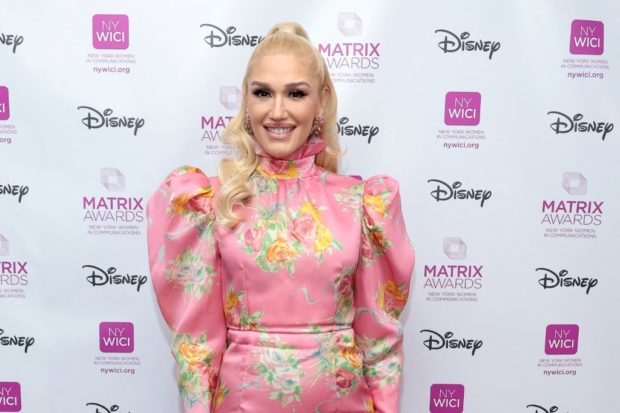Gwen Stefani responds to cultural appropriation accusations, says ‘I’m Japanese’

Gwen Stefani attends the 2022 Matrix Awards at The Ziegfeld Ballroom on Oct. 26, 2022, in New York City. Image: Getty Images/Dimitrios Kambouris via AFP
Gwen Stefani has spoken up on the backlash over her Harajuku era, years after she debuted it, as she declared in a recent interview that she is Japanese.
The American singer started her Harajuku era back in 2004, with the release of her album “Love. Angel. Music. Baby” and continued with the launch of her 2008 fragrance line “Harajuku Lovers.” Stefani also often traveled with four “Harajuku Girls,” or Japanese and Japanese-American backup dancers, leading to accusations that she was appropriating the Japanese Harajuku subculture for her album’s artwork and marketing.
Despite it being nearly two decades since the era started, it has returned to headlines with Stefani’s interview with Allure yesterday, Jan. 10, wherein she spoke about her new vegan beauty brand GXVE Beauty.
Stefani was asked about her learnings from “Harajuku Lovers.” She then responded by recalling that she was introduced to Japanese culture by her Italian American father, who worked at a Japanese motorcycle manufacturer for 18 years and frequently traveled between California and Japan.
“That was my Japanese influence and that was a culture that was so rich with tradition, yet so futuristic [with] so much attention to art and detail and discipline and it was fascinating to me,” she said in the interview.
Article continues after this advertisementStefani narrated that she eventually got to travel again to Japan and see Harajuku–a district in Shibuya, Tokyo–as an adult.
Article continues after this advertisement“I said, ‘My God, I’m Japanese and I didn’t know it,” she was quoted as saying. “I am, you know.”
Stefani also explained that she sees an “innocence” in her relationship with Japanese culture and refers to herself as a “super fan.”
“If [people are] going to criticize me for being a fan of something beautiful and sharing that, then I just think that doesn’t feel right,” she stated.
Stefani considers her Harajuku era a “beautiful time of creativity” and a “pingpong match” between the Harajuku and American cultures.
“[It] should be okay to be inspired by other cultures because if we’re not allowed then that’s dividing people, right?” she added.
Stefani asserted twice during the interview that she was Japanese, noting that she was “a little bit of an Orange County girl, a little bit of a Japanese girl, a little bit of an English girl.” She also identifies with Hispanic and Latino cultures because of her upbringing in Anaheim, California.
A representative for Stefani has since reached out to Allure, indicating that the article’s writer had misunderstood what Stefani was trying to convey, but they did not elaborate on the matter. /ra
RELATED STORIES:
LOOK: Gwen Stefani and Blake Shelton just got married
Herlene ‘Hipon Girl’ Budol called out for cultural appropriation over ‘Fro’ hairstyle